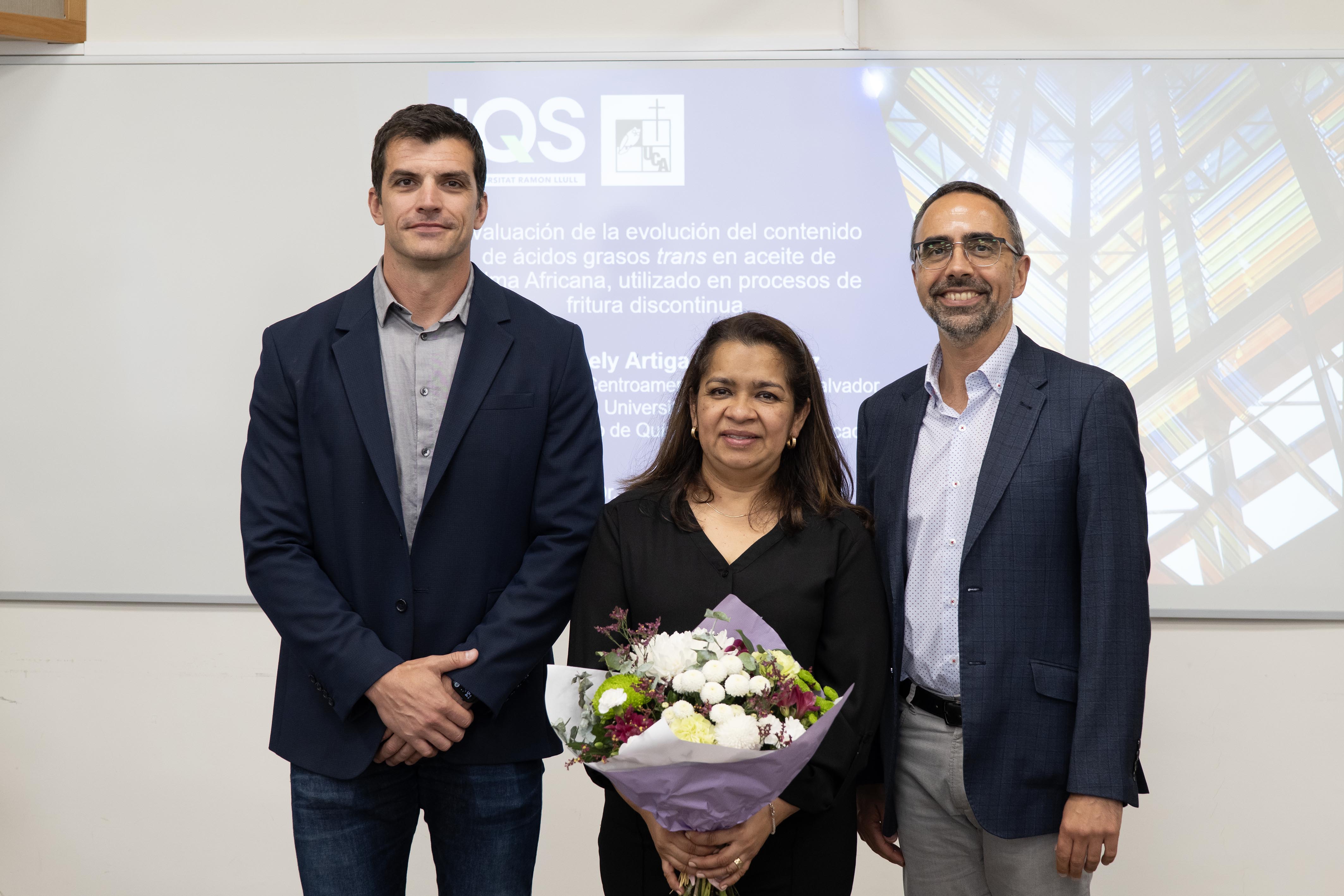Food preparation in Salvadoran cuisine mainly relies on deep frying processes using ingredients based on corn, banana, cassava, and potato. These ingredients make it possible to obtain a wide variety of food products, both at home and in artisanal and industrial settings. The most commonly used oil for such cooking is palm oil due to its stability at high temperatures, organoleptic quality, low cost, and ability to extend the shelf life of products.
One of the main problems with deep frying is the degradation of palm oil, leading to the formation of various impurities, especially trans fatty acids, when the oil is heated for several hours then reused. The World Health Organization (WHO) has defined these compounds as harmful to human health due to their implication in cardiovascular diseases and their presence in a vast number of processed foods.
Within the framework of the collaboration between IQS – URL and the Universidad Centroamericana José Simeón Cañas – UCA in El Salvador, Dr Aracely G. Artiga Machuca conducted her doctoral thesis in which she studied and analysed the formation of these trans fatty acids in palm oil. Entitled Evaluation of the evolution of the fatty acid content in African Palm Oil used in discontinuous frying processes, her thesis was supervised by Dr Jordi Díaz Ferrero and Dr Xavier Ortiz Almirall within the Department of Analytical and Applied Chemistry at IQS.
Development of the analytical method
To study the formation of these trans fatty acids, Dr Artiga first developed and prepared an analytical methodology for these compounds, using gas chromatography with a flame ionization detector (FID), a study that was conducted at the IQS Chromatography Laboratory under the supervision of Dr Francesc Broto Puig. To identify and quantify these trans fatty acids, present in very low content in commercial palm oil, the fatty acids were derivatized to methyl esters for better identification and quantification, especially the majority C18:1 trans isomer.
The methodology carried out was validated with standards of olein samples generated in experimental simulations, followed by the validation of the results obtained by statistical methods, thus rigorously ensuring the accuracy, precision, and linearity of the results for the procedures carried out.
Application of the methodology
Once the analytical method was established and validated, simulation studies of prolonged discontinuous frying and the formation of trans fatty acids were conducted at the UCA Food Science and Technology Laboratory, replicating the most common processing conditions in El Salvador, in addition to studying oils marketed with the label “trans fat-free.” This study showed that oils marketed as “trans fat-free” initially have low levels of trans acids. However, as the oil is reused, its composition changes and mono- and polyunsaturated fatty acids tend to decrease, while saturated fatty acids and trans C18.1 increase, both in the olein used to fry food and in the olein heated under the same temperature and time reuse conditions.
Related publication
Artiga, Aracely et al. “Development of a GC-FID method for the analysis of fatty acids in palm olein to study the formation of C18:1 trans during deep discontinuous frying processes in El Salvador food industry.” Afinidad. Journal of Chemical Engineering Theoretical and Applied Chemistry, 2024, vol. 81, no. 603, pp. 218-2.















